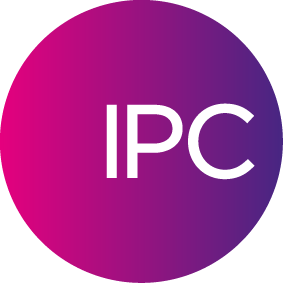Telefónica, a worldwide leader in telecommunications and IT services, and IPC, market leader in trading communications solutions, today announce that they have signed an agreement to jointly offer trading communications solutions.
This alliance with IPC is part of the Telefónica strategy to offer a vertical services portfolio that covers the specific needs of financial institutions. Telefónica widens its portfolio by offering the state of the art trading solutions of IPC which are based on open standards and IP technology, ready for the current requirements for SIP integration and Next Generation Networks connectivity.
IPC reinforces the collaboration with Telefónica, strengthening the position in key countries by leveraging on the assets of Telefónica. The first phase of the agreement includes offering voice trading solutions to the market in Spain, Portugal; where Telefónica would be the exclusive distributor of the new Unigy Solution; to collaborate to develop business in several countries of Latin America (México, Argentina, Colombia, Perú) and to jointly propose global trading solutions to several multinational strategic customers.
Clients will benefit from voice trading solutions based on the IPC technology, which is used by top financial institutions around the world. These solutions are designed to meet global regulatory challenges and help trading firms to transform their workflow. They will also be able to take advantage of the position of Telefónica as a global IT and communications provider and will be able to have global integrated solutions that cover all their communications needs.
“IPC’s primary goal is to provide sophisticated trading communications solutions and expertise that grants clients a competitive advantage in every stage of the trade lifecycle. Products such as our Unigy platform enable us to do so by making the entire trading ecosystem more productive, secure and efficient,” said Joe Smolarski Senior Vice President, Trading Communications Systems Sales & Support, IPC. “We look forward to working with Telefónica to allow customers to benefit from the combination of IPC’s trading industry expertise and Telefónica’s communications solutions leadership.”
“This agreement allows us to provide world-class solutions that cover the trading needs of financial institutions and enable them to stay ahead of global markets requirements. By addressing these customers IT and communications needs, we help them to focus on their business and strengthen their competitive position.” said Juan Carlos López Vives, President of Telefónica Global Solutions. “Furthermore, the global market reach of both companies is an added value for our Multinational clients and an excellent growth opportunity for IPC and Telefónica, collaborating to jointly develop business in the markets in which we operate.”
About IPC
IPC is a leading global provider of specialized communications solutions for the financial trading community. With a 100-percent focus on this sector and over 40 years of expertise, IPC provides customers with integrated solutions that support traders and participants across the entire trade lifecycle including sell-side and buy-side financial institutions, inter-dealer brokers, liquidity venues, clearing and settlement firms, independent software vendors, corporate finance departments, financial information exchange providers and market data providers. IPC’s offerings include a unified communications/application platform, award-winning hard and soft turrets, managed voice and data network connectivity solutions, trading communications infrastructure management and dedicated service and support. IPC’s global reach extends to more than 60 countries – including a network of 5,000 customer sites over 700 cities and an installed base of approximately 118,000 trading positions deployed worldwide. Headquartered in Jersey City, New Jersey, IPC has approximately 900 employees located throughout the Americas and the EMEA and Asia-Pacific regions. For more information, visit www.ipc.com.
About Telefonica Global Solutions
Telefonica Global Solutions manages globally the multinational, wholesale and roaming business within the Telefonica Group. Global Solutions delivers integrated fixed, mobile and IT services to some of the world’s top multinationals and corporations. It also provides global telecommunication services for fixed and mobile carriers, ISPs and content providers. Telefonica Global Solutions develops an integrated and competitive portfolio for carriers and corporations that include international voice, IP, bandwidth capacity, satellite services, mobility and global solutions, with service reach in more than 170 countries. Global Solutions is a multicultural organization, with more than 1400 employees, working in over 40 countries and speaking more than 15 languages.

